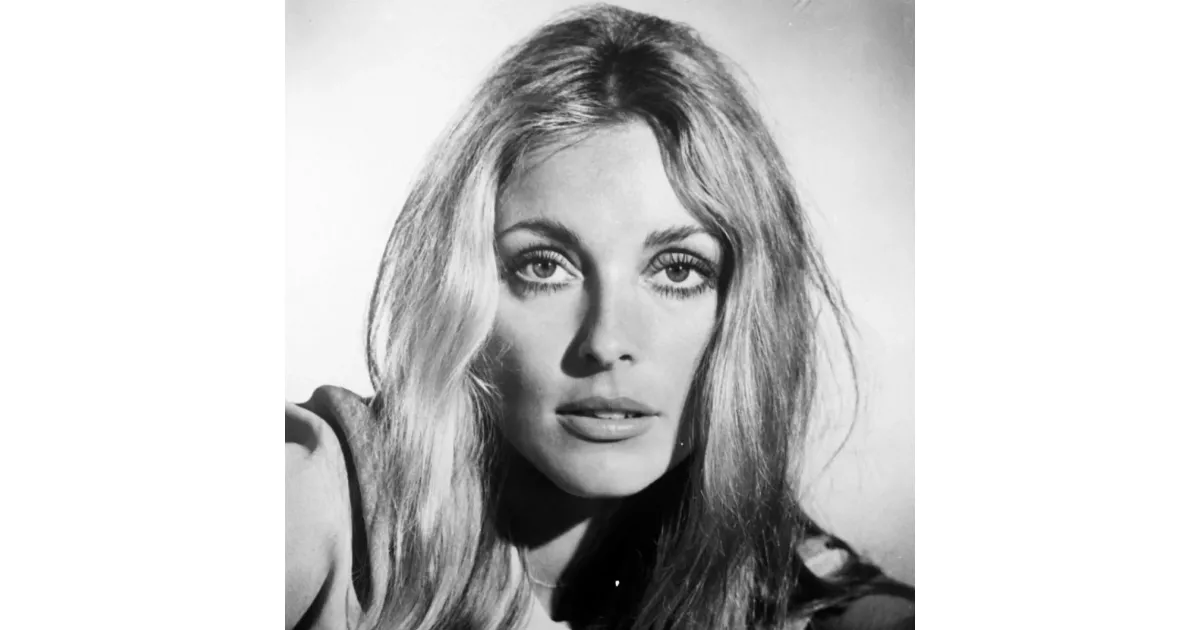Sharon Tate Polanski was an American actress and model who rose to prominence in the 1960s. She began her career in advertising and television before transitioning to film. Her comedic and dramatic acting skills earned her critical acclaim and comparisons to Marilyn Monroe, establishing her as a rising star in Hollywood.
January 24, 1943: Birth of Sharon Tate
On January 24, 1943, Sharon Marie Tate Polanski was born. She would later become a well-known American actress and model.
September 1955: Start at Chief Joseph Junior High
Sharon Tate began attending Chief Joseph Junior High School in September 1955.
June 1958: Completion of Chief Joseph Junior High
In June 1958, Tate completed her studies at Chief Joseph Junior High School.
September 1958: Start at Columbia High School
Tate started her education at Columbia High School in Richland, Washington, in September 1958.
October 1959: Leaving Columbia High School
In October 1959, Tate left Columbia High School.
1959: Winning Miss Richland
At the age of sixteen, Sharon Tate won the "Miss Richland" beauty pageant in Washington in 1959.
1960: Television Debut and Meeting Richard Beymer
In 1960, Sharon Tate was hired by singer Pat Boone, leading to her television debut on an episode of "The Pat Boone Chevy Showroom," filmed in Venice. During the filming of "Hemingway's Adventures of a Young Man," Tate and her friends worked as extras and she met Richard Beymer, who encouraged her to pursue acting.
1960: Relocation to Italy and Unexpected Fame
Sharon Tate's father was transferred to Italy in 1960. She became a local celebrity in Verona due to a picture of her in a swimsuit on the cover of "Stars and Stripes." During this time, she attended an American school in Vicenza where she formed meaningful friendships.
June 1961: Graduation from Vicenza American High School
Sharon Tate graduated from Vicenza American High School in June 1961.
1961: Film Debut as an Extra
Sharon Tate made her first appearance in film in 1961 as an extra in "Barabbas" with Anthony Quinn.
1962: Relocation to Los Angeles and Career Beginnings
Sharon Tate returned to the United States and moved to Los Angeles in 1962. She started her career with television and magazine advertisements after securing representation with Harold Gefsky.
1963: Signing with Filmways, Inc.
Martin Ransohoff, director of Filmways, Inc., signed Sharon Tate to a seven-year contract in 1963 after being introduced to her by Harold Gefsky. Despite this, Tate was offered only minor roles initially to help her gain experience.
1963: Engagement to Philippe Forquet
Sharon Tate began a relationship with French actor Philippe Forquet in 1963, and they later got engaged. The relationship was turbulent, and they broke up in 1964 due to career pressures and frequent arguments.
1964: Breakup with Philippe Forquet
Sharon Tate and Philippe Forquet ended their engagement in 1964.
1964: Meeting Jay Sebring and Declining Marriage Proposal
Sharon Tate met Jay Sebring, a prominent Hollywood hairstylist, in 1964. Despite Sebring's proposal, Tate declined, choosing to focus on her burgeoning acting career.
1964: Screen Test for "The Cincinnati Kid"
Sharon Tate went through a screen test for "The Cincinnati Kid" opposite Steve McQueen in 1964. However, she was rejected due to her lack of experience, and the role was given to Tuesday Weld.
1965: First Major Film Role in "Eye of the Devil"
Sharon Tate landed her first major film role in "Eye of the Devil" in late 1965, co-starring with David Niven, Deborah Kerr, Donald Pleasence, and David Hemmings.
1966: Appearance in "Eye of the Devil"
In 1966, Tate took on a role in the British mystery horror film, "Eye of the Devil."
March 1967: Esquire Photoshoot and Playboy Feature
In March 1967, Sharon Tate was photographed on the set of "Rosemary's Baby" for Esquire, generating significant publicity. A Playboy article featuring Tate, including nude photographs taken by Roman Polanski, further boosted her fame and solidified her status as a rising star.
1967: Playboy Article and Rising Fame
A 1967 Playboy article featuring Sharon Tate marked her growing popularity in Hollywood.
1967: Return to London and Public Image
Sharon Tate and Roman Polanski returned to London in late 1967, becoming frequent subjects of media attention. Tate was portrayed as a modern, unconventional woman, further solidifying her public image.
1967: Breakthrough Role in "Valley of the Dolls"
Sharon Tate landed her first major film role in 1967 as Jennifer North in the American drama "Valley of the Dolls." This performance garnered her a Golden Globe Award nomination and significantly boosted her career.
January 20, 1968: Marriage to Roman Polanski
Sharon Tate and Roman Polanski married in a highly publicized ceremony in Chelsea, London on January 20, 1968.
1968: Tate Stars in "The Wrecking Crew" and Receives Critical Acclaim
During the summer of 1968, Sharon Tate starred in the comedy "The Wrecking Crew" alongside Dean Martin. The film was a success, and Tate's performance garnered positive reviews, with critics particularly praising her comedic timing and action sequences.
1968: Roman Polanski Encourages Tate's Career Shift and They Become Part of Hollywood's Elite Social Circle
In 1968, Roman Polanski encouraged Sharon Tate to prioritize her relationship over her career. They moved back to Los Angeles and became deeply embedded in a social circle of Hollywood's influential figures, including actors, musicians, and filmmakers.
1968: Training with Bruce Lee for "The Wrecking Crew"
In 1968, Sharon Tate's interest in martial arts led her to train with Bruce Lee for her role in the film "The Wrecking Crew." This training reflected Tate's commitment to her craft and her willingness to embrace new skills.
1968: Tate Becomes Pregnant, Prompting a Move to Cielo Drive
Towards the end of 1968, Sharon Tate became pregnant. This life-changing event led to her and Polanski's decision to move to a larger home on Cielo Drive in February of the following year, a place where they envisioned raising their family.
February 15, 1969: Tate and Polanski Move into Their "Love House" on Cielo Drive
On February 15, 1969, Sharon Tate and Roman Polanski moved into 10050 Cielo Drive in Benedict Canyon, a house they affectionately called their "love house." This marked a new chapter in their lives as they prepared for the arrival of their child.
March 1969: Tate Begins Filming "The Thirteen Chairs" in Italy
In March 1969, Sharon Tate traveled to Italy to start filming "The Thirteen Chairs," a comedy that provided her the opportunity to work alongside Orson Welles. This project highlighted her growing success in the film industry and her desire to explore different genres.
July 20, 1969: Tate Returns to Los Angeles from London
On July 20, 1969, Sharon Tate returned to Los Angeles from London, where she had been with Roman Polanski. She sailed on the Queen Elizabeth 2, arriving eager to prepare for the birth of their child and reunite with Polanski upon his return in August.
August 8, 1969: Tate Spends Time with Friends and Family
On August 8, 1969, Sharon Tate spent time with friends and family. She had lunch with actress Joanna Pettet, sharing her feelings about Polanski's delayed return from London. Later that day, she spoke with both Polanski and her sister, Debra, demonstrating the importance of her close relationships.
August 9, 1969: Death of Sharon Tate
Sharon Tate tragically passed away on August 9, 1969.
September 1969: Arrest of the Manson Family and Revelation of the Motive
In September 1969, law enforcement apprehended members of the Manson "Family" on unrelated charges. This led to a breakthrough in the Tate case, uncovering the motive behind the murders. The target was not the victims themselves but the house, previously rented by record producer Terry Melcher, who had a connection to Charles Manson.
1969: Posthumous Release of "12+1"
Sharon Tate's final completed film, "12+1," was released posthumously in 1969.
1969: Actresses Portray Sharon Tate
Since her tragic death in 1969, numerous actresses have portrayed Sharon Tate in films and television shows, reflecting the enduring fascination with her life and the circumstances surrounding her death. These portrayals often explore the complexities of her story and its impact on popular culture.
1975: Release of "Helen of Troy" by John Cale
Sharon Tate is referenced in John Cale's song "Leaving It Up to You" from his 1975 album "Helen of Troy." The song's mention of Tate reflects the cultural impact of her tragic death and the way it resonated with artists of the time.
1979: "Tess" Film Dedication
Roman Polanski dedicated his film "Tess" to Sharon Tate, fulfilling her wish to adapt the novel into a film together. This dedication reflects the profound impact Tate had on Polanski's life and career even after her death in 1969.
1980: Release of "Catholic Boy" by the Jim Carrol Band
The Jim Carroll Band's 1980 album "Catholic Boy" features a song titled "It's Too Late," which references Sharon Tate in its opening lines. This brief mention reflects the enduring presence of Tate's story in popular culture and its continued influence on artistic expression.
1984: Publication of "Roman by Polanski"
In his 1984 autobiography, "Roman by Polanski," Roman Polanski grappled with the enduring pain and shattered faith he experienced following the murder of Sharon Tate and their unborn child in 1969. The autobiography reveals the depth of his loss and the struggle to find meaning in the face of tragedy.
1990: Doris Tate Delivers Impactful Statement at Parole Hearing
In 1990, Doris Tate, Sharon's mother, delivered a powerful victim impact statement at one of the Manson Family killers' parole hearings. She directly addressed Tex Watson, emphasizing the brutality of the crime and the enduring pain it inflicted on her family. Her unwavering commitment to seeking justice for her daughter became a defining aspect of her life.
1992: Doris Tate Recognized for Advocacy Work; Diagnosed with Brain Tumor
In 1992, President George Bush honored Doris Tate as one of his "thousand points of light" in recognition of her tireless advocacy for victims' rights. This public acknowledgment coincided with a devastating diagnosis of a malignant brain tumor, marking a poignant moment in her life.
1993: Patti Tate Challenges Geffen Records over Manson Song Inclusion
In 1993, Patti Tate, Sharon's younger sister, confronted Geffen Records over their decision to include a song written by Charles Manson on the Guns N' Roses album "The Spaghetti Incident?" She criticized the record company for potentially glorifying Manson and desensitizing a younger generation to his crimes.
1993: Establishment of the Doris Tate Crime Victims Bureau
The Doris Tate Crime Victims Bureau, a nonprofit organization, was founded in 1993 with the mission to influence crime legislation nationwide. Driven by Doris Tate's vision, the organization aims to empower victims of violent crimes and advocate for their rights.
1994: Demolition of the Cielo Drive House
The house on Cielo Drive, forever marked by the tragic events of 1969, was demolished in 1994. A new house was subsequently built on the site, signifying a physical and symbolic attempt to move on from the past.
1995: Formation of the Doris Tate Crime Victims Foundation
The Doris Tate Crime Victims Foundation was established in 1995 as a nonprofit organization. Continuing the work of Doris Tate, the foundation seeks to raise public awareness about the judicial system and provide support for victims of violent crimes.
2000: Debra Tate Continues Advocacy After Patti's Death
Following Patti's death from breast cancer in 2000, Debra Tate assumed the role of representing the Tate family at parole hearings. She remained a vocal advocate against the release of the Manson Family killers, emphasizing their lack of remorse and the ongoing pain they inflicted.
2000: Publication of "Sharon Tate and the Manson Murders"
Greg King's book, "Sharon Tate and the Manson Murders," published in 2000, explores Sharon Tate's enduring impact on victims' rights. The book highlights the tireless work of the Tate family, particularly Doris and Patti Tate, in advocating for changes in the legal system. Their efforts led to significant reforms that gave victims and their families a more prominent voice in criminal justice proceedings.
May 2005: Death of Colonel Paul Tate
Colonel Paul Tate, Sharon's father, passed away in May 2005. While he preferred to stay out of the public eye, he played an active role in seeking justice for his daughter. He attended parole hearings, wrote letters to authorities, and remained a steadfast source of support for his family.
July 2005: Polanski Wins Libel Case Against Vanity Fair
In July 2005, Roman Polanski emerged victorious in a libel lawsuit against Vanity Fair magazine. The magazine had falsely claimed that he had behaved inappropriately towards a woman while en route to Sharon Tate's funeral. The trial brought renewed attention to the tragedy of Tate's death and its lasting impact on those who knew and loved her.
2009: "ICON: Life Love & Style of Sharon Tate" Exhibition
The 2009 art exhibition "ICON: Life Love & Style of Sharon Tate," curated by Jeremy Corbell, commemorated the 40th anniversary of Tate's passing. The exhibition, endorsed by the Tate family, showcased Sharon's iconic style through a vast collection of her personal belongings and photographs, providing insight into her life beyond her tragic death.
2012: Release of "Restless Souls"
The 2012 publication of "Restless Souls" offered a controversial glimpse into Sharon Tate's life through the lens of those who knew her. The book, containing contributions from family friend Alisa Statman and Tate's niece Brie Taylor Ford, drew criticism from Debra Tate, who questioned its accuracy.
June 10, 2014: Publication of "Sharon Tate: Recollection"
Debra Tate's coffee table book, "Sharon Tate: Recollection," released on June 10, 2014, offered a unique perspective on her sister's life and career. The book focuses solely on Tate's accomplishments and personal life, intentionally avoiding the tragic events of her death.
2019: Release of "Once Upon a Time... in Hollywood"
Quentin Tarantino's 2019 film "Once Upon a Time... in Hollywood" brought a fictionalized portrayal of Sharon Tate to the big screen. The film, featuring Margot Robbie as Tate, reimagines the events leading up to the Manson murders, offering an alternate ending that diverges from the tragic reality.
2020: Publication of "Violet Bent Backwards over the Grass"
Lana Del Rey's 2020 poetry collection, "Violet Bent Backwards over the Grass," features a poem titled "In the Hills of Benedict Canyon" that makes reference to Sharon Tate. The poem's evocation of Tate highlights her enduring presence in the cultural landscape, even decades after her death.
Mentioned in this timeline

Lana Del Rey born Elizabeth Woolridge Grant is a celebrated...

Margot Robbie is a highly acclaimed Australian actress and producer...

Guns N' Roses an American hard rock band formed in...

Quentin Tarantino is a highly influential American filmmaker actor and...

Los Angeles is the most populous city in California and...

The Queen Elizabeth QE a retired British passenger ship is...
Trending

14 minutes ago Cavaliers defeat Hornets 118-113: Game recap and key takeaways from the match.
14 minutes ago Vaccination Requirements and Measles Prevention in Cabo San Lucas and La Paz
15 minutes ago Cason Wallace Secures Four Steals in Thunder's Victory: A Promising NBA Performance.
1 day ago Roman Anthony expected as Red Sox leadoff hitter in 2026, lineup prediction

15 minutes ago Isaiah Hartenstein showcases passing skills, removed from injury report, fills stat sheet.
15 minutes ago Sadie Sink and Noah Jupe Star in Romeo & Juliet West End Production.
Popular

Jesse Jackson is an American civil rights activist politician and...

Barack Obama the th U S President - was the...

Bernie Sanders is a prominent American politician currently serving as...

Michael Joseph Jackson the King of Pop was a highly...

Ken Paxton is an American politician and lawyer serving as...
WWE Raw a professional wrestling television program by WWE airs...
